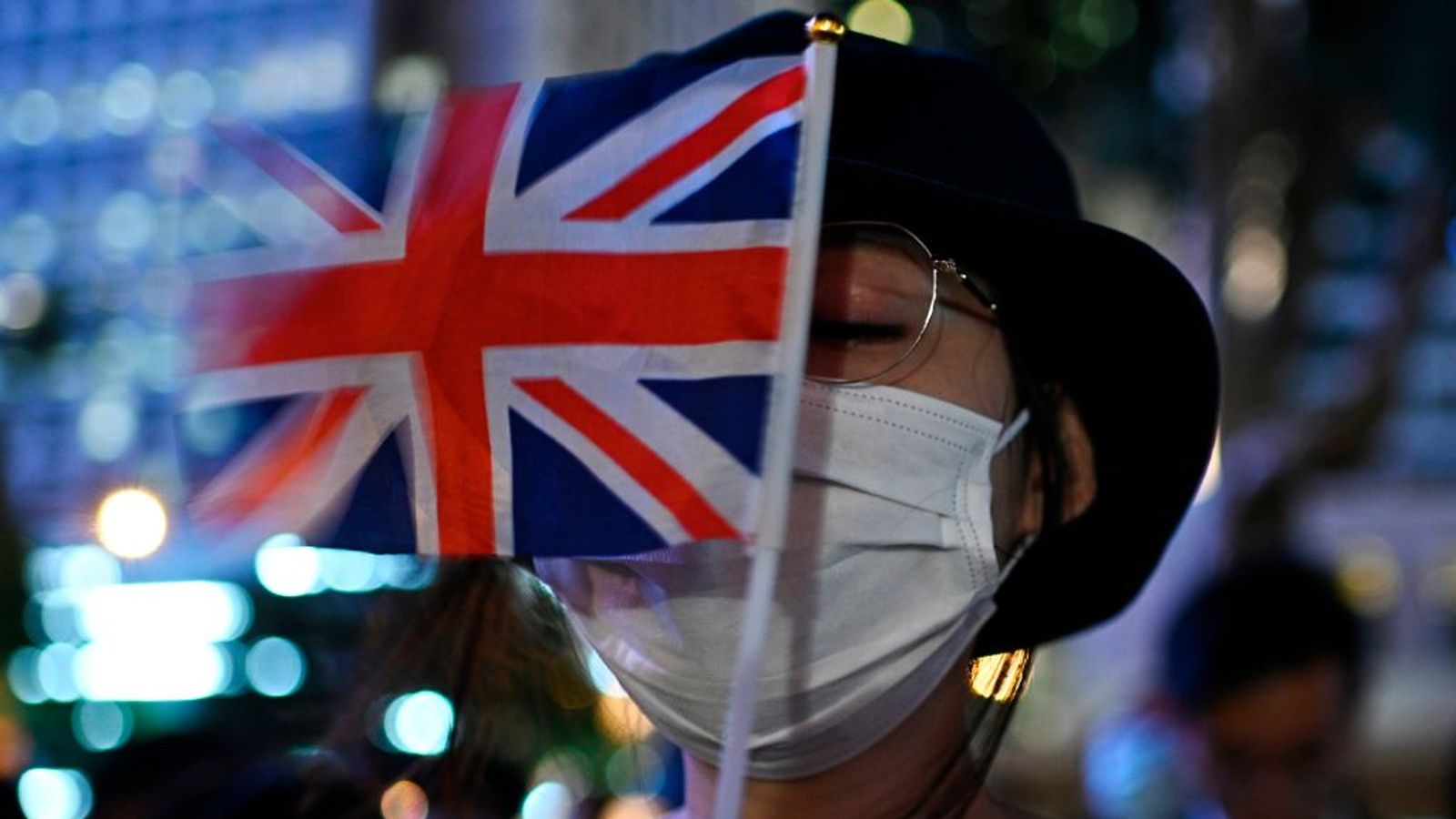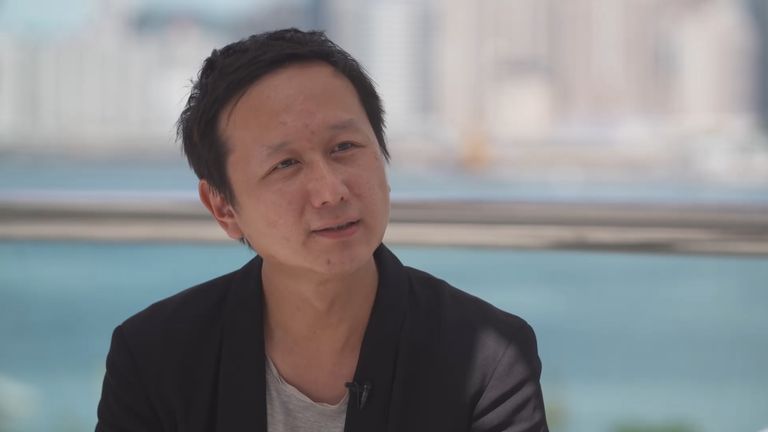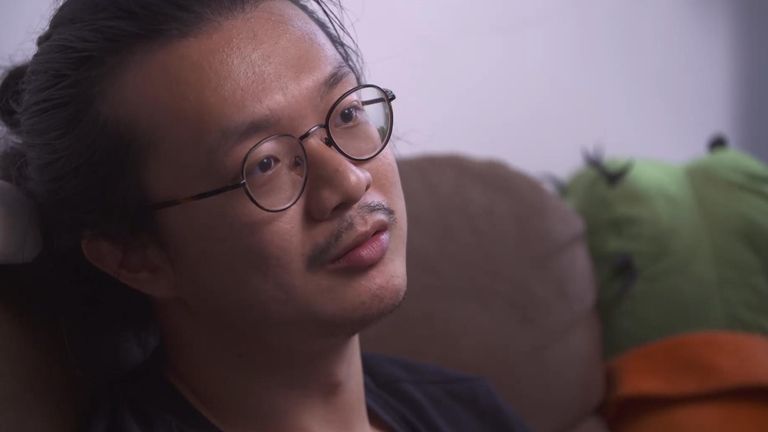This isn’t how Mrs Lee imagined her middle age in Hong Kong: doing an anonymous interview, using a pseudonym, as she prepares to leave her home.
“I am a traditional Hong Konger,” she tells Sky News. “I believe there ought to be justice.”
“I’m not young. I’m 48 and my husband is in his fifties. I have two children. This is for my children.”
Mrs Lee is among hundreds, if not thousands, of Hong Kong residents preparing to leave the territory and take up the UK’s offer of a path to citizenship there.
Last year’s protests, and Beijing’s imposition of a sweeping national security law this year, have turned Mrs Lee and her family – her children are school age – into unlikely refugees.
Before that, she says she had been “a Hong Kong pig” – someone more concerned for their own well-being than politics.
“If I had no children I might stay here and be a comfortable Hong Kong pig. I’m halfway through my life already. But when I have children so young, they can’t be limited here.”
“If I stay in Hong Kong, I will be a second or third-class citizen. I will never have the right to vote [for the city’s leader]. And I will only have a Hong Kong passport.
“But if I have the opportunity to go to the UK, and we contribute to society, then my children will be first-class citizens, because they’ll have a British passport and the right to vote.”
Mrs Lee thinks that she will start a business in Manchester, probably a restaurant.
“We appreciate that the UK has opened this door to us,” she says.
After Beijing imposed the national security law in Hong Kong, the British government made an offer to those eligible for a British National (Overseas) Passport – meaning anyone born before the handover of Hong Kong in 1997 and their dependants.
Around three million people are eligible.
BNO citizens will be able to stay and work in the UK for five years. After another year, they will be allowed to apply for citizenship.
China has reacted angrily, accusing the UK of interfering in its internal affairs, and has threatened to stop recognising BNO passports, although the actual implications of that are not clear.
But it’s not having much of a deterrent effect on people in Hong Kong.
Billy Wong, an immigration consultant, tells Sky News that there has been a “massive” increase in demand.
He estimates that, before the change in the BNO policy, it would cost between £300,000 and £400,000 to move to the UK – most of the money needed for an innovator visa to start a business, the rest for living expenses.
Now the total cost will be in the thousands.
Mr Wong says it’s easier for Hong Kong people to move to the UK than Taiwan, a traditional destination.
“The threshold for UK immigration has always been quite high,” he tells Sky News. “Now that the door for BNO is open… the UK becomes a better option, right on your doorstep.”
But others are not moving – at least not yet.
Pong, a film and documentary maker, had a BNO passport but it expired more than 10 years ago. He doesn’t plan to get another.
Sky News asks what it would take for him to leave Hong Kong.
“Maybe if the freedom of speech shrinks to an extent that it affects my filming and creative production,” he says.
“If it gets so bad that my life is in danger, or that I will get arrested – at that point I might consider leaving.”
At that point, though, would he be able to leave?
“It’s true,” he says. “If I wait until then, it might be too late.”





